CIPPM Co-Director Dr. Dinusha Mendis together with Dr. Davide Secchi (From April 2015, Associate Professor, University of Southern Denmark) and Dr. Phil Reeves of Econolyst Ltd have published a sequence of three reports on the intellectual property implications of 3D printing resulting from a project commissioned by the UK Intellectual Property Office. The three reports can be accessed here.
In 2012, the Big Innovation Centre, in their Report ‘Three Dimensional Policy: Why Britain needs a policy framework for 3D Printing’ provided a number of recommendations. A key recommendation was to review the intellectual property (IP) implications of 3D printing.
In 2013, the UKIPO highlighted the lack of empirical evidence relating to 3D printing and the difficulty in determining whether this emerging technology will have an impact on IP laws. The aim of the current project was therefore to respond to this limited research. In doing so, the Studies adopted a legal, quantitative and qualitative approach.
 Study I titled ‘A Legal and Empirical Study of Online Platforms and an Analysis of User Behaviour’ explores 17 online platforms dedicated to 3D printing and provides a legal and empirical overview of how the online platforms operate and aims to provide a clearer understanding of ‘how’ the sharing happens. In this context, Study I provides an understanding of the ‘parameters’ for sharing, e.g. terms and conditions, rules and regulations that apply, together with restrictions and bounds that apply to the user behaviour and file-sharing. As such, Study I evaluates the extent of this phenomenon amongst users. In doing so, the research examines the price, downloads, licences, type of physical objects, which are shared and the implications for intellectual property laws and in particular analyses the legal provisions arising from the sharing and the copyright implications relating to software. As such, Study I presents new findings on the current status of 3D printing relating to online platforms.
Study I titled ‘A Legal and Empirical Study of Online Platforms and an Analysis of User Behaviour’ explores 17 online platforms dedicated to 3D printing and provides a legal and empirical overview of how the online platforms operate and aims to provide a clearer understanding of ‘how’ the sharing happens. In this context, Study I provides an understanding of the ‘parameters’ for sharing, e.g. terms and conditions, rules and regulations that apply, together with restrictions and bounds that apply to the user behaviour and file-sharing. As such, Study I evaluates the extent of this phenomenon amongst users. In doing so, the research examines the price, downloads, licences, type of physical objects, which are shared and the implications for intellectual property laws and in particular analyses the legal provisions arising from the sharing and the copyright implications relating to software. As such, Study I presents new findings on the current status of 3D printing relating to online platforms. 
Study II titled ‘The Current Status and Impact of 3D Printing Within the Industrial Sector: An Analysis of Six Case Studies’ explores the status, impact and adoption of 3D printing in the Replacement Parts, Customised Goods and High Value Small Status Goods Industries.
To map the impact that 3D printing technology is having on the UK’s economic and legal landscape, Study II represents six case studies which consider the current and future consequence of 3D printing. The first two case studies address issues relating to Replacement Parts and consider how 3D printing will affect the supply of aftermarket parts to the consumer. The two case studies within the Customised Goods theme address how 3D printing enables unique products to be manufactured that are tailored to consumers’ needs, and the IP challenges that arise from this. Finally, the two case studies within the High Value Small Status Goods theme look at the impact that 3D printing is having on consumer products that have a low functional purpose, such as collectible figurines or sculptures.

The third publication – an Executive Summary – brings together the findings and conclusions from the two Studies and provides recommendations.
The Studies concluded that there is no urgency to legislate at present as 3D printing is not a mass phenomenon yet. It warned that a premature call for legislative and judicial action in the realm of 3D printing could stifle the public interest of “fostering creativity and innovation and the right of manufacturers and content creators to protect their livelihoods”.
However, as 3D printing continues to grow it is important to address the IP issues arising in this area in order to cultivate a climate better suited to tackling impending IP issues more successfully and in a manner, which takes into account the interests of all stakeholders.
As such, the Studies make some important recommendations to Government, the Industry and Intermediaries (online platforms) about how to regulate 3D printing without resorting to legislation.
Recommendations to Government suggest the setting up of a Working Group to review the technology and the IP status particularly the position in relation to the software (Computer-Aided Design (CAD) Files) and the traceability of spare parts. The Reports also suggest that the Government should adopt a ‘wait-and-see’ approach.
The Studies conclude that 65% of users engaged in the activities of 3D printing on online platforms do not license their work, leaving their creations vulnerable and open to infringement whilst losing the ability to claim authorship. The Study therefore recommends that online platforms provide more awareness and understanding of the different types of licences. The Study suggests that this aim can be achieved by explaining the nuances relating to each licence in clear and simple language, rather than simply ‘encouraging’ the user to adopt a particular type of licence. Furthermore, online platforms can assign the most appropriate licence as a default with ‘opt-out’ as an option.
Finally, in relation to Industry, the Study recommends the adoption of new business models and provides a number of suggestions in this regard. The Reports also suggest the licensing of CAD files more widely, thereby opening up doors to a range of outlets selling 3D CAD files. This will avoid locking the manufacturer into an agreement through a system such as a ‘one-stop-shop’ for (spare) parts. Although a one-stop-shop may take away the costs of manufacture, transportation and storage whilst reducing potential infringement of IP laws, it can lead to a monopoly-situation, which should be avoided.
A press release led to the research being picked up by various media outlets including IPP Pro, Pan European Networks, Phys.org, Nanowerk and 3Dprint.com amongst others.
A further write-up of the research was published by the UKIPO following the publication of the reports. Bournemouth University’s Research Chronicle also presented a feature article in March 2015 on the research and its findings.
Following the publication of the reports, Dr. Dinusha Mendis, the Principal Investigator of the project, was invited by the Australian Government to present the research in March 2015, highlighting the impact of this research in another jurisdiction. Dr. Mendis also presented the research in March at the University of Tasmania in Australia and the Swinburne University of Technology, Melbourne.

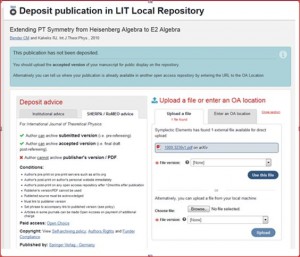
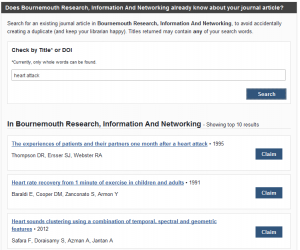

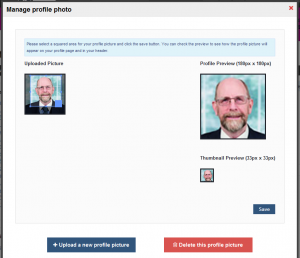









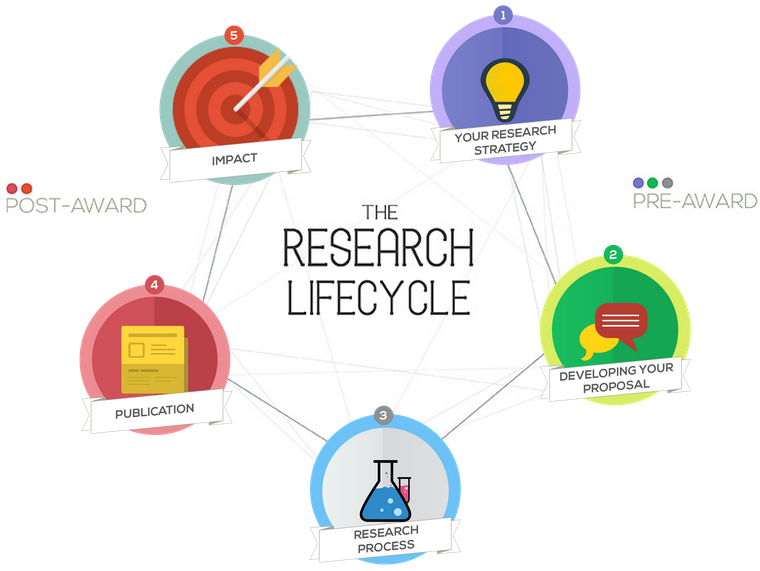
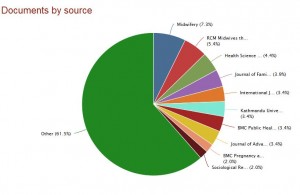

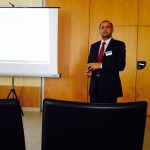
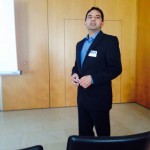
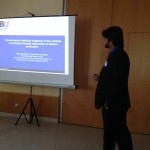
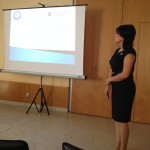
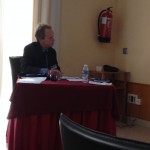
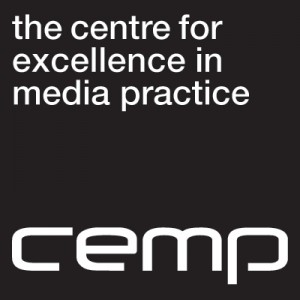



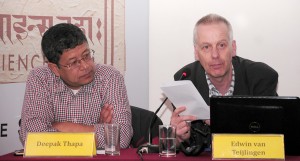











 BRIAN upgrade and new look
BRIAN upgrade and new look Seeing the fruits of your labour in Bangladesh
Seeing the fruits of your labour in Bangladesh Exploring Embodied Research: Body Map Storytelling Workshop & Research Seminar
Exploring Embodied Research: Body Map Storytelling Workshop & Research Seminar Marking a Milestone: The Swash Channel Wreck Book Launch
Marking a Milestone: The Swash Channel Wreck Book Launch ECR Funding Open Call: Research Culture & Community Grant – Application Deadline Friday 12 December
ECR Funding Open Call: Research Culture & Community Grant – Application Deadline Friday 12 December MSCA Postdoctoral Fellowships 2025 Call
MSCA Postdoctoral Fellowships 2025 Call ERC Advanced Grant 2025 Webinar
ERC Advanced Grant 2025 Webinar Update on UKRO services
Update on UKRO services European research project exploring use of ‘virtual twins’ to better manage metabolic associated fatty liver disease
European research project exploring use of ‘virtual twins’ to better manage metabolic associated fatty liver disease